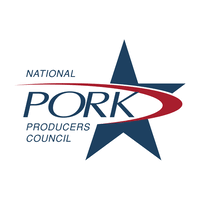
National Pork Producers Council
WASHINGTON, D.C., July 8, 2020 – The establishment of a robust Foot-and-Mouth Disease (FMD) vaccine bank—a top, long-term priority for the National Pork Producers Council (NPPC)—came closer to reality today as the United States Department of Agriculture (USDA) announced its first significant vaccine purchase. NPPC was instrumental in advocating for establishment of the FMD vaccine bank as part of the 2018 Farm Bill.
Currently, the USDA, which has prescribed vaccination for dealing with an FMD outbreak, does not have access to enough vaccine should an outbreak occur. FMD is an infectious viral disease that affects cloven-hooved animals, including cattle, pigs and sheep; it is not a food safety or human health threat. The disease is endemic in many parts of the world and would have widespread, long-term fallout for livestock and crop agriculture, including the immediate loss of export markets.
“Today’s announcement is momentous, representing years of NPPC advocacy to ensure U.S. agriculture is protected should we have an FMD outbreak,” said NPPC President Howard “AV” Roth, a hog farmer from Wauzeka, Wisconsin. “While U.S. pork producers and other farmers face significant challenges and uncertainty due to the COVID-19 pandemic, a solution to FMD preparedness is in our grasp. We thank USDA and especially Under Secretary for Marketing and Regulatory Programs Greg Ibach for proceeding with such an important effort and look forward to continuing to work with the agency to ensure the FMD vaccine bank is adequately stocked.”
The 2018 Farm Bill provided $150 million in mandatory funding over the next five years for the FMD vaccine bank, the National Animal Health Laboratory Network and the National Animal Disease Preparedness Program.
According to Iowa State University research, an FMD outbreak would result in $128 billion in losses for the beef and pork sectors, $44 billion and $25 billion, respectively, to the corn and soybean farmers, and job losses of more than 1.5 million across U.S. agriculture over 10 years.
